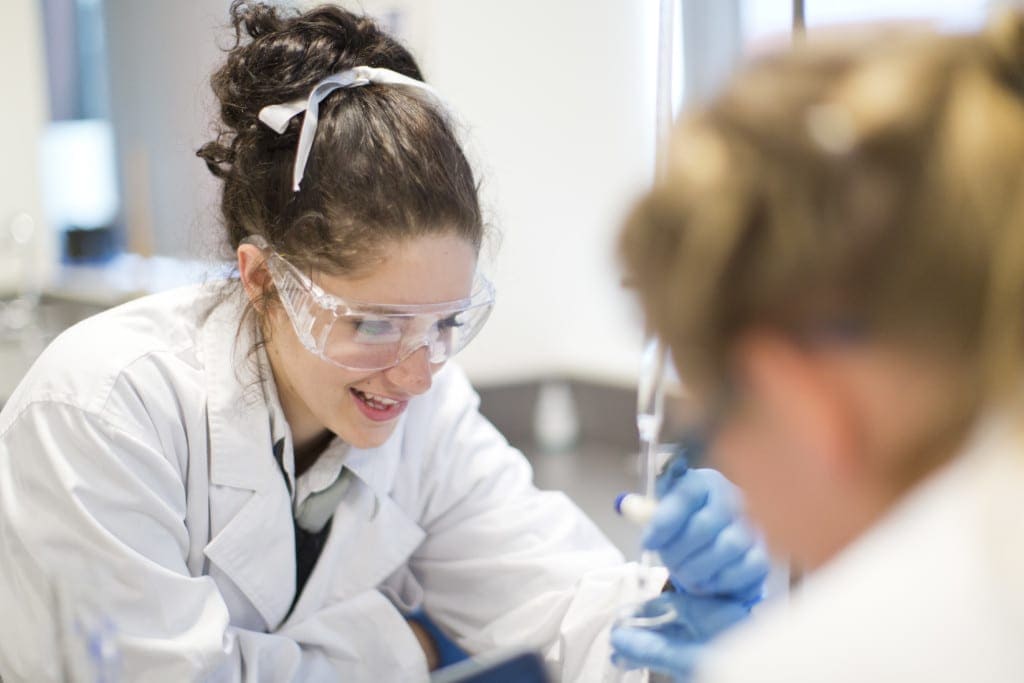We talk to the Queensland Academies Creative Industries Campus about the International Baccalaureate and asked them to explain why it is becoming a popular path of study for Brisbane schools and their students.
International Baccalaureate – Learners for Life
The International Baccalaureate Diploma Programme is not a new kid on the block. With almost 50 years of history and steady growth in the number of schools offering the program, the International Baccalaureate Diploma is highly sought by students around the world. It brings with it established credibility in educating the whole person, with a focus on personal and interdependent wellbeing.
International Baccalaureate Diploma students aspire to become IB Learners; learners for life who embody the ten IB Learner attributes: Inquirers, Knowledgeable, Thinkers, Communicators, Principled, Open-minded, Caring, Risk-takers, Balanced, and Reflective.
ACADEMIC BREADTH AND DEPTH
The International Baccalaureate Diploma is widely recognised by colleges and universities around the world as superior preparation for students to succeed at post-secondary institutions. Students study six subjects from a range of disciplines which means they are not forced to narrow their choices while at school.
And regardless of the subject selection, all students
- explore the connections between the six major subject areas,
- study each subject through an international perspective,
- reflect critically on aspects of knowledge,
- pursue one subject in great detail through independent research, and
- have the opportunity to apply their knowledge and skills through local and community service.
ENCOURAGES CRITICAL THINKING
IB students learn to look beyond the facts, analyse sources, link one subject to another, and to question, question, and question! Inquisitiveness and interpretation are among the key cognitive assets of an IB education. Students develop as independent learners, and co-direct their education; they also recognise the importance of cultivating skills like collaboration and creative thinking which are transferrable to the workplace and influence learning as a life-long habit.
INTEGRATED CURRICULUM

The IB Diploma stands alone against other curricula for many reasons; one of the main points of difference is Theory of Knowledge (ToK) – another of the elements that forms the core with CAS and the Extended Essay. ToK encourages students to make connections between subjects and gain the skills needed to become critical thinkers and more effective learners, rather than simply repositories of knowledge.
GRADUATES CARE ABOUT MORE THAN JUST RESULTS
A core component of the International Baccalaureate Diploma is Creativity, Activity, and Service (CAS) which encourages experiential learning. This can take the form of student-led advocacy initiatives that support developing nations, to sharing their creativity, knowledge and skills to support local community groups. CAS gives students a perspective on the world, their place in it, and the drive to consider, plan, act, and reflect – valuable life-skills that distinguish IB alumni in the university admissions process and workplace.
INDEPENDENT LEARNERS WHO FEEL PREPARED
Every IB Diploma graduate completes their own immersive research project – called the Extended Essay – which comprises independent research and excellent organisational skills that culminate in a 4000 word essay. Universities recognise and value the Extended Essay’s role in developing cognitive, research, writing and communication skills in students; skills that are vital to confident and successful higher learning.
AN INTERNATIONAL QUALIFICATION
The IB Diploma qualification itself is internationally benchmarked which allows graduates to continue their studies anywhere in the world with confidence and ability. However, regardless whether a student decides to study or work abroad, the IB Diploma recognises that the world is increasingly borderless and young people now have greater opportunities to engage in the global workplace. To adapt to these challenges the IB Diploma aims to prepare students to balance their local and national identity with an international mindset so graduates feel prepared and enthusiastic about the future. IB students achieve this by learning to see the world from different cultural perspectives through acquiring another language, and engaging in inquiry, action and reflection on locally and globally significant issues across the curriculum.
STRENGTHENS TIME MANAGEMENT AND BALANCE
The features of academic rigour and independent learning in the IB Diploma lead the development of vital organisational practices that only become more important as students reach their university and career aspirations. Good study habits create learners who can hit the ground running in higher education and those who are organised and reflective are better able to maintain a healthy balance between work and play.
IT IS NOT ALL ABOUT EXAMINATIONS
IB Diploma assessment is summative, largely occurring at intervals across the two year duration of the program. Assessment focuses on what students have learned and their abilities, rather than what they haven’t learned or can’t do. Testing is rigorous, backed by high-level evidence, and is based on performance against set standards. Examinations are externally delivered and assessed and students are not ranked according to the performance of their cohort; the grades a student earns are grades a student keeps.
UNIVERSITIES RECOGNISE IT – AND GIVE CREDIT FOR IT
The IB Diploma enjoys a high level of respect and recognition among the world’s higher education institutions. For students, success in the IB often results in advanced standing, course credit, scholarships, and other admissions related benefits at many universities. Locally this includes Queensland universities such as Griffith University, Queensland University of Technology, and The University of Queensland.
As emergent global citizens, IB Learners recognise their common humanity and shared guardianship of the planet and help to create a better and more peaceful world.
Joanna Evans International Baccalaureate Programs, Marketing & Communications at Queensland Academies Creative Industries.
This article was published in Issue 21 of our print magazine, April/May 2017.

